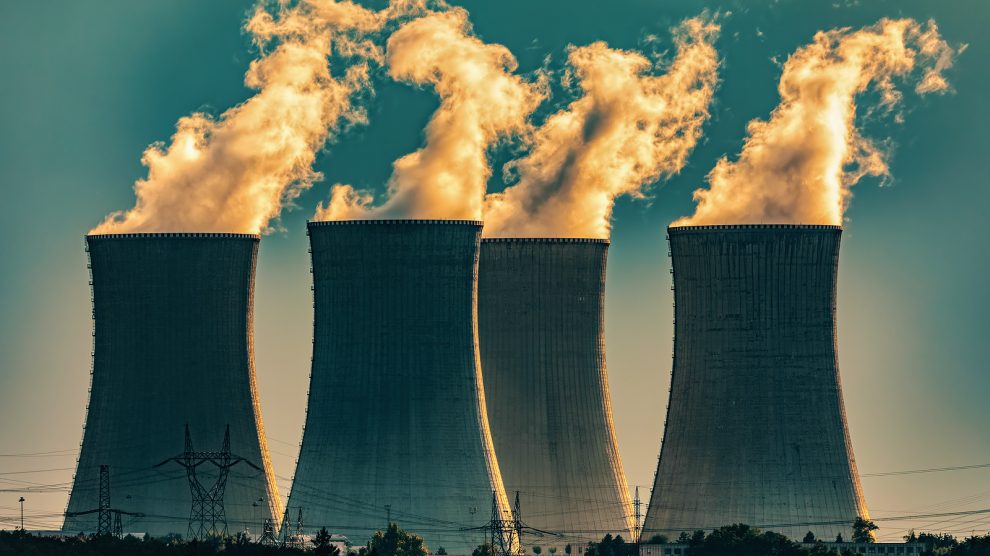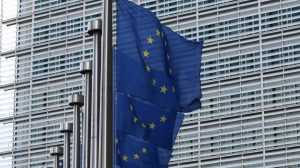Until its recent closure last month, Bohemia Energy was the largest Czech supplier of alternative energy, demonstrating that the ongoing energy crisis has had an unprecedented effect even on businesses offering alternatives to gas.
Prague-based Bohemia Energy, which boasts close to 900,000 customers in the country, last month announced that it would be shutting down all its activities.
The closure comes as a blow to the many analysts who have pointed to electricity suppliers such as Bohemia Energy as having the potential to offer a solution to Europe’s over-dependence on natural gas, and Russian gas in particular.
- Not yet approved by the EU, Romania looks to deploy US-made small nuclear reactors
- Falling cost of renewables provides emerging Europe with non-nuclear solution to coal exit
- Free, by Lea Ypi: A unique, insightful, and often hilarious look at Albania in transition
In Czechia, as in much of the rest of the European Union, the price of electricity is based on the EU’s “pay as you clear” energy pricing system, which has for the past month meant that the ever-increasing cost of gas has significantly driven up the cost of power.
According to Wadim Strielkowski, a professor at the Centre for Energy Studies at the Prague Business School, Bohemia Energy’s struggling business is directly related to the “rapidly raising prices of electricity on the energy markets, which have gone up 300 per cent since last year”.
“The European energy market has found itself in a completely unprecedented situation. For example, in the United Kingdom, 15 energy suppliers that operated in a similar way to Bohemia Energy have already been forced to close their energy supplies and are heading for bankruptcy,” Strielkowski tells Emerging Europe.
“I believe the end of supplies by Bohemia Energy was mainly caused by its business model. The company was buying on the short-term market, instead of hedging through forward contracts, as other energy suppliers frequently chose to do,” adds Michaela Valentová of the Faculty of Electrical Engineering at the Czech Technical University in Prague.
“They bet on low electricity prices and did not manage to cope with the rapid increase in electricity prices,” Valentová tells Emerging Europe.
Finding a true alternative
As demonstrated by Bohemia Energy’s inability to stay afloat, the diversification of energy sources does not do enough to address the concerns of energy suppliers and consumers under the EU’s current pricing system.
For this reason, in the aftermath of the ongoing gas and electricity price spike, Czech Minister of Finance Alena Schillerová, alongside her French, Greek, Spanish and Romanian counterparts, released a common statement suggesting changes to the current approach.
The officials suggest the need for a reform of the EU wholesale electricity market to improve the link “between the price paid by consumers, and the average production cost of electricity”, especially as “decarbonisation will increase the use of electricity in our economy”.
The text further asserts that investing in low carbon energies such as biomass, wind and solar energy is vital to decreasing the bloc’s dependency on gas-supplying states.
Where is Czechia’s transition headed?
Schillerová is far from the only voice in Prague calling for the urgent increase in the use of renewable energy resources in her country and throughout Europe.
Apart from Czechia’s high levels of dependency on natural gas, the country is also amongst the most heavily coal dependent in the whole of the EU.
However, Valentová argues that the recent struggle of Bohemia Energy to stay in business, alongside the overall increase in gas and electricity prices could help push the nation toward greener energy sources.
“I would possibly expect a growing interest in renewable energy sources, especially rooftop PV systems. There was already quite a striking growth in residential solar PVs in 2020 and 2021,” she points out.
Meanwhile, Strielkowski asserts that nuclear energy should not be disregarded as a source of renewable energy.
“When it comes to alternative energy sources in Czechia, nuclear energy still has a large share and promising perspectives. The future of alternative energy might be small (under 300 MW according to the International Atomic Energy Agency) nuclear reactors,” he argues.
“Small modular reactors (SMRs) diminish the problems of conventional nuclear reactors and help the development of the future electricity grids. They are safer and easier to operate, even though the issue with the location of SNR close to the settlements requires gaining wider public acceptance,” he further explains.
Earlier this month, Romania’s state-owned nuclear energy producer Nuclearelectrica agreed a deal with US energy firm NuScale to deploy the first SMRs in Europe by 2028.
NuScale is the first and so far only firm whose SMRs have received approval from the US Nuclear Regulatory Commission – a crucial step towards the construction and deployment of the technology.
However, SMR technology has not yet been approved for use in the European Union.
Czechia currently has six nuclear reactors generating about one-third of its electricity. Earlier this year, the country’s largest utility, majority state-owned CEZ, announced a plan to shut most of its coal-fired power plants by 2030.
Unlike many news and information platforms, Emerging Europe is free to read, and always will be. There is no paywall here. We are independent, not affiliated with nor representing any political party or business organisation. We want the very best for emerging Europe, nothing more, nothing less. Your support will help us continue to spread the word about this amazing region.
You can contribute here. Thank you.








Add Comment